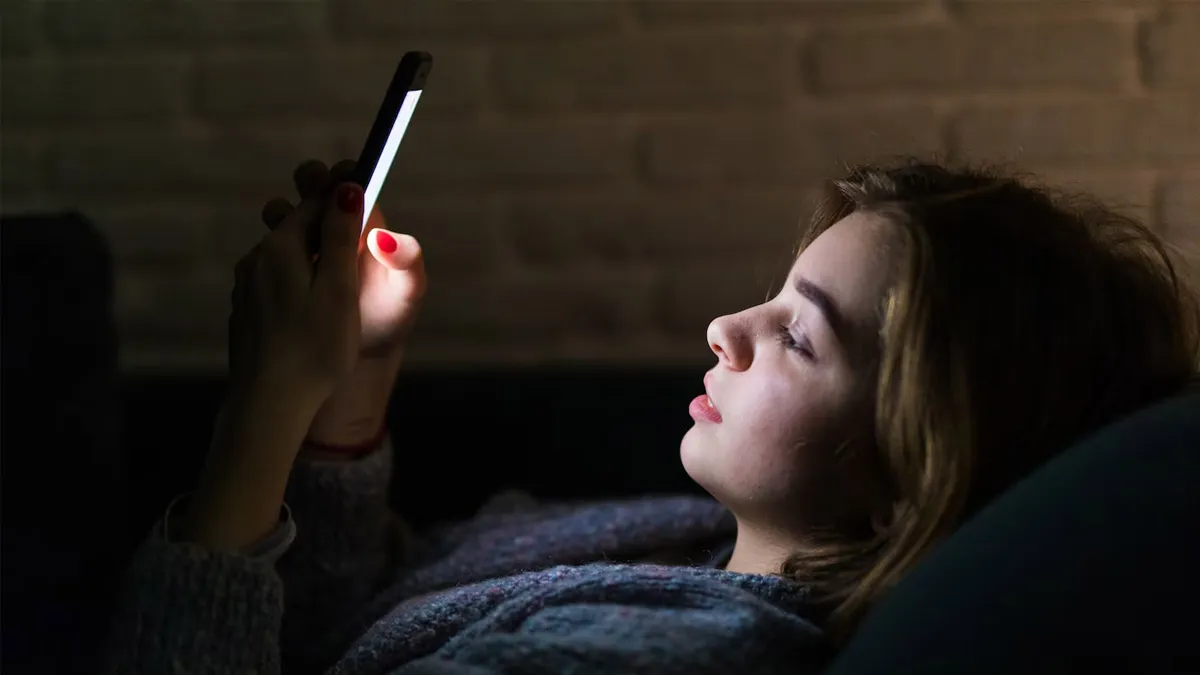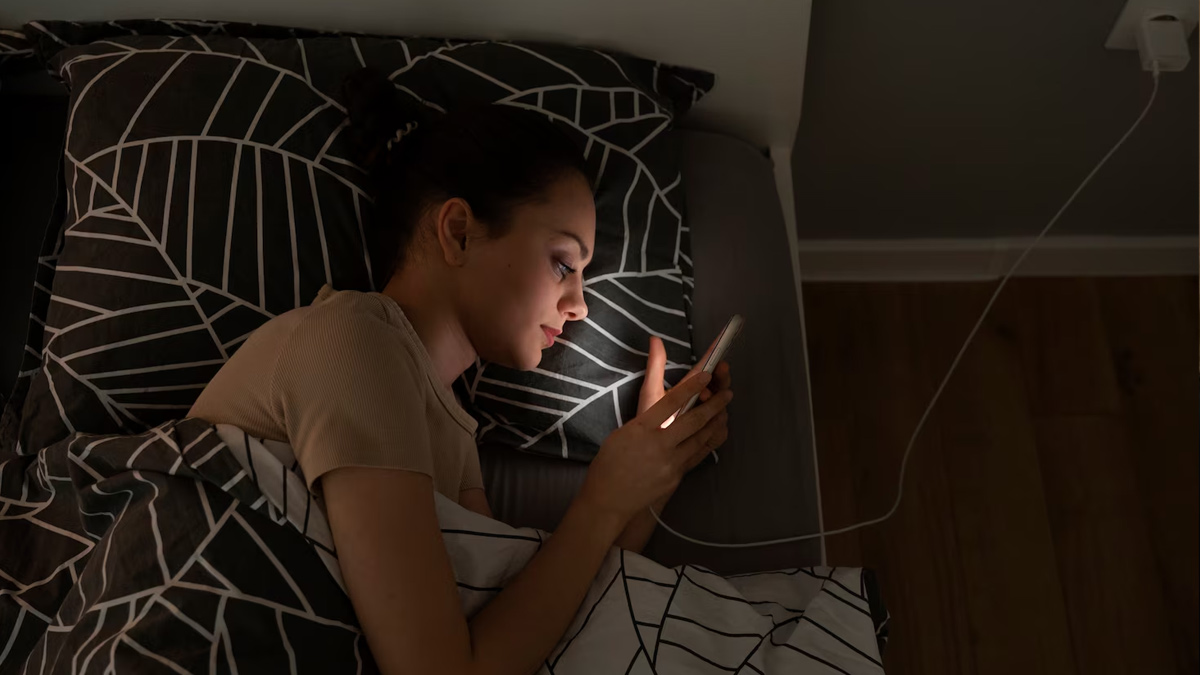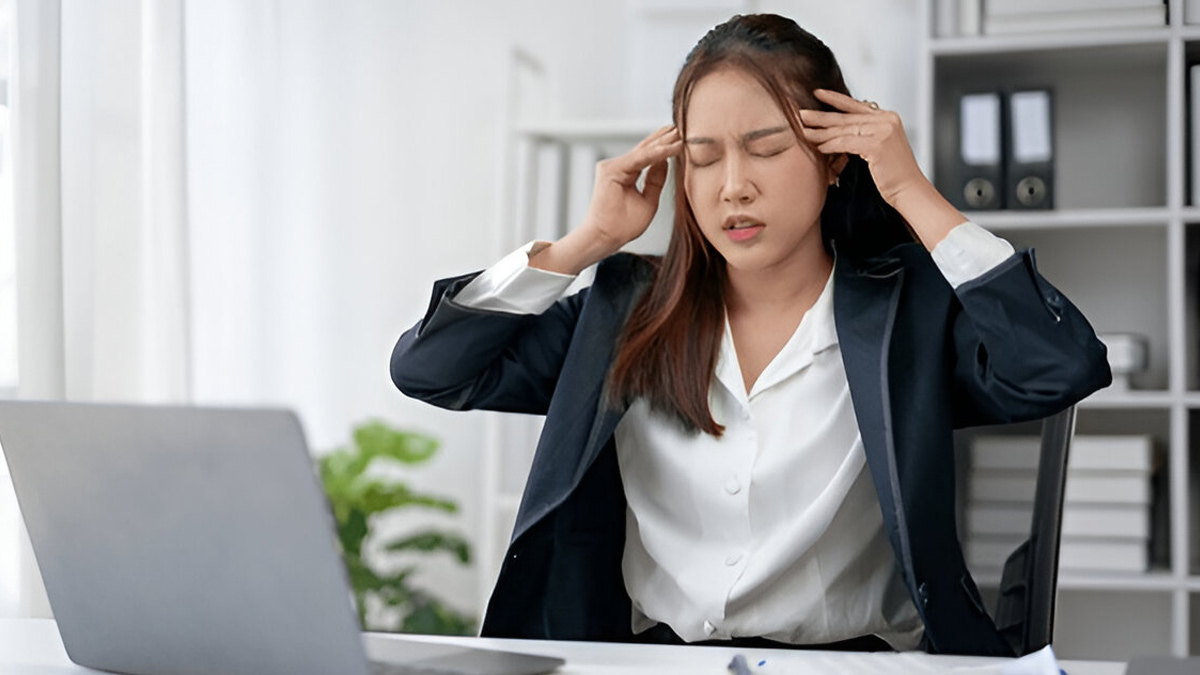
Scrolling through social media before bed has become a second nature for many of us. While we often promise to quit after one or two videos, before we know it, over an hour has gone by and sleep is something far away. What may seem like a harmless way to catch up online can actually disrupt your sleep cycle, affect your mood, and impact your overall health.
Table of Content:-
We spoke to Dr Manav Manchanda, Director and Head – Respiratory, Critical Care and Sleep Medicine, Asian Hospital, Faridbad, who explained the impact of late-night screen time on sleep and overall health.
How Scrolling Before Bed Affects Sleep and Overall Health

Blue light from screens disrupts our sleep-wake cycles, tricking our bodies into thinking it is daytime and making it harder to sleep at night. It penetrates the eye deeply, interfering with the body's internal clock and altering sleep patterns.
"Melatonin, the sleep hormone secreted by the brain, can be suppressed by blue light, making it difficult to sleep on time. It can cause insomnia, frequent nighttime wakings, and fatigue in the morning. Chronic use can cause fatigue, irritability, and even permanent impairment of cognitive function. Late-night use of the screen has also been connected to mood swings, compromised immunity, high stress levels, and weight gain," explained Dr Manchanda.
When you scroll through reels online before going to bed, your brain doesn't relax but stays awake. It increases the amount of dopamine and adrenaline, making it difficult to sleep. It may lead to overthinking, disturbed sleep, poor concentration, and mental fatigue.
"Furthermore, watching stimulating, passionate, dramatic, or emotional content before bedtime can cause stress hormones to be released. This leads to heightened anxiety, worry, rumination, sleep disturbance, and even nightmares," added Dr Manchanda.
Also Read: What Is Doomscrolling: Know Impact On Mental Health And Tips To Cope
Impact on Memory, Concentration, and Cognitive Function

"Continuous social media scrolling at night might have a negative impact on your memory, focus, and cognitive performance. Poor sleep patterns caused by social media might impair your focus, delayed reflex actions, forgetfulness, lack of motivation, brain fog, and decision-making abilities," explained Dr Manchanda.
In the long term, night scrolling affects every aspect of your well-being, ranging from sleep problems to ongoing fatigue, diminished cognitive functions, cardiovascular illness, increased tension, reduced productivity, hormonal imbalance, and obesity.
A report released in August 2024 by Computers in Human Behavior Reports confirms these findings, suggesting that doomscrolling could exacerbate existential anxiety—a sense of dread or panic triggered by confronting the boundaries of human existence. Another study, presented in April 2024, sheds more light, with employees who doomscroll while at work found to be less involved in their work-related duties.
Also Read: Blood Pressure In The Digital Age: How Screen Time And Sleep Disruptions Affect The Heart
What You Should Do
Dr Manchanda advised, "Some measures to help limit late-night screen time include establishing strict guidelines of at least 2 – 3 hours, especially before bed, avoiding watching stimulating content, always using a night mode, listen to calming music, or trying reading a book if you are looking for entertainment to help you fall asleep."
Also watch this video
Read Next
How Everyday Items Like Dirty Pillowcases And Towels Can Secretly Damage Your Skin And Hair
How we keep this article up to date:
We work with experts and keep a close eye on the latest in health and wellness. Whenever there is a new research or helpful information, we update our articles with accurate and useful advice.
Current Version